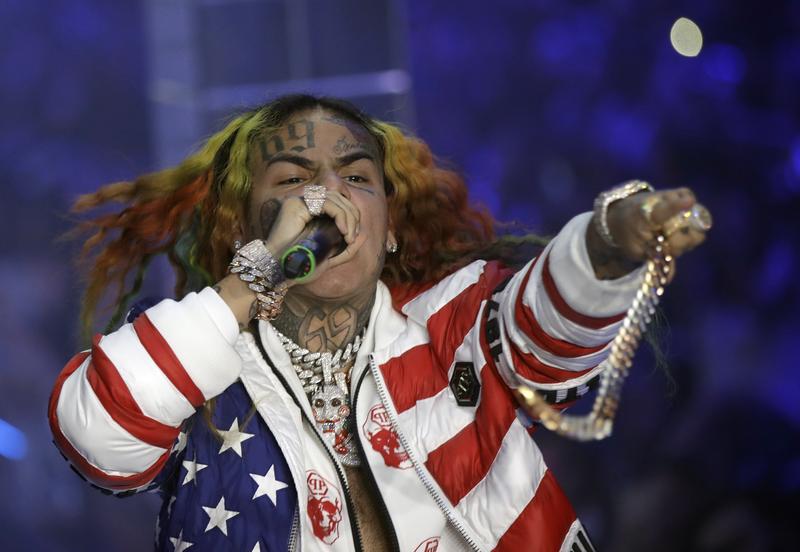
A few years ago, Daniel Hernandez was on the rise as a rapper and Instagram star. Performing and posting under the name Tekashi 6ix9ine, he flaunted his ties to an infamous street gang. But after he was arrested and charged in a sweeping racketeering case against a gang called the Nine Trey Gangsta Bloods, he became a star witness for federal prosecutors, and was labeled a snitch in the process. The Brooklyn rapper is now set to be sentenced Wednesday, Dec. 17.
New York Times reporter Ali Watkins was in the courtroom during his appearances as a witness, and joined WNYC's Richard Hake to explain the case.
WNYC transcripts are created on a rush deadline and the text may be updated or revised in the future. Accuracy and availability may vary. The authoritative record is the audio record.
Richard Hake: It's Morning Edition on WNYC. I'm Richard Hake. A few years ago Teashi 6ix 9ine was on the rise as a rapper and Instagram star with ties to an infamous street gang. But after he was arrested and charged in a sweeping racketeering case, he became a star witness for federal prosecutors. The Brooklyn rapper is set to be sentenced today and New York Times reporter Ali Watkins has been following the story and now joins us by Skype. Welcome back to WNYC.
Ali Watkins: Thanks for having me.
Richard Hake: So can you explain why it was so surprising? That Takashi six nine whose real name is Daniel Hernandez wound up testifying against his former gang?
Ali Watkins: I mean Tekashi. His character reinvention here has been stunning, frankly. I mean, he spent the last three or four years basically his entire late teenage adult life inventing this persona that was just the antithesis of law enforcement of order of, you know, he creates this brand where he talks law enforcement on these live streamed, Snapchat videos and starts beefs with other rappers' girlfriends on Instagram and he's described himself as a supervillain. And then suddenly you get him on the witness stand and and you almost can't get him to stop talking.
Richard Hake: Right? He spent three days on the stand and you were in the courtroom for most of that. What did he have to say?
Ali Watkins: I mean, he kind of went down a list, his cooperation level like i said, i mean it's it's hard to describe it. Stunning. He described all the inner workings of the nine Trey gangsta bloods, which is the the gang that he was a part of, and that kind of helped build his rap career. He goes through a list of other rappers describing their gang affiliations, granular details about armed robberies and hits that his crew put out another on their other rappers and, you know, he obviously helped federal prosecutors, put most of his former crew away.
Richard Hake: You said that prosecutors could ask for a reduction of his sentence, but also have said that he might go into witness protection. How would a guy who is so recognizable with that tattoos all over his face and body ever disappear in a crowd?
Ali Watkins: I mean, there's ways to do it. And you know, just based on some of my conversations with former and current federal law enforcement officials, like they've all kind of said there are ways that we can keep people safe. I think the issue is less could they do it? versus could Takashi do it? You know, because obviously this would require him to stay up Instagram and to kind of create this entirely new life and there's nothing in his history that suggests he would be capable of doing that.
Richard Hake: All right, Ali Watkins, Metro reporter for The New York Times. Thanks so much for joining us this morning.
